John Thomas McNeill (28 July 1885, Elmsdale, Prince Edward Island - 2 February 1975, Chicago) was a Canadian church historian.
He was the son of William Cavendish McNeill (1849-1928). He was educated at Prince of Wales College, McGill University, New College, Edinburgh, Halle University and the University of Chicago. In 1920 he was awarded a doctorate from the latter, where he served on the faculty until 1944. [1] In 1922 he was awarded the Herbert Baxter Adams Prize for his work The Celtic Penitentials and Their Influence on Continental Christianity. [2]
As of 1951, he was Auburn Professor of Church History at Union Theological Seminary. [3] He was the father of William H. McNeill, and grandfather of J.R. McNeill, both leading historians and presidents of the American Historical Association. He was also an ordained Presbyterian minister. [4]
He served alongside of John Baillie and Henry P. Van Dusen as a general editor of the Library of Christian Classics series, which includes modern translations of the writings of Christian theologians and thinkers such as Aquinas, Augustine, Calvin, Luther and other reformers and early church fathers. McNeill himself was the chief editor of the series' release of John Calvin's Institutes of the Christian Religion in a fresh translation in more contemporary English based on extensive knowledge of Patristics and Classical literature by Ford Lewis Battles at McNeill’s personal request. [5] The production of this most recent English translation (released in 1960) of the French Reformer's "magnum opus" was the work of several Latin scholars and theologians on both sides of the Atlantic. [6]
Charles Partee called him "the doyen of American Calvin scholars". [7]

Reformed Christianity, also called Calvinism, is a major branch of Protestantism that began during the sixteenth-century Protestant Reformation, a schism in the Western Church. In the modern day, it is largely represented by the Continental, Presbyterian, and Congregational traditions, as well as parts of the Anglican and Baptist traditions.

Presbyterianism is a Reformed (Calvinist) Protestant tradition named for its form of church government by representative assemblies of elders. Though there are other Reformed churches that are structurally similar, the word Presbyterian is applied to churches that trace their roots to the Church of Scotland or to English Dissenter groups that formed during the English Civil War.
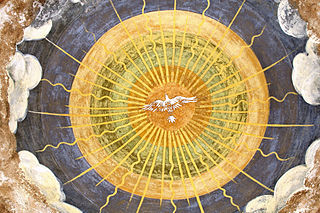
Pneumatology refers to a particular discipline within Christian theology that focuses on the study of the Holy Spirit. The term is derived from the Greek word Pneuma, which designates "breath" or "spirit" and metaphorically describes a non-material being or influence. The English term pneumatology comes from two Greek words: πνεῦμα and λόγος. Pneumatology includes study of the person of the Holy Spirit, and the works of the Holy Spirit. This latter category also includes Christian teachings on new birth, spiritual gifts (charismata), Spirit-baptism, sanctification, the inspiration of prophets, and the indwelling of the Holy Trinity. Different Christian denominations have different theological approaches on various pneumatological questions.

Institutes of the Christian Religion is John Calvin's seminal work of systematic theology. Regarded as one of the most influential works of Protestant theology, it was published in Latin in 1536 at the same time as Henry VIII of England's Dissolution of the Monasteries and in his native French language in 1541. The definitive editions appeared in 1559 in Latin and in 1560 in French.
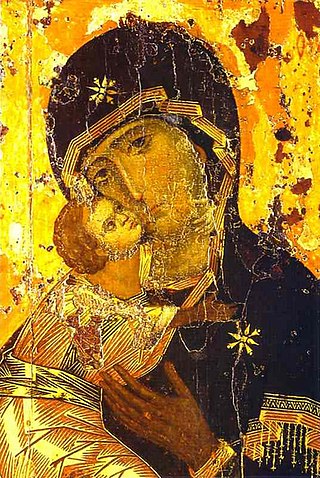
The perpetual virginity of Mary is a Christian doctrine that Mary, the mother of Jesus, was a virgin "before, during and after" the birth of Christ. In Western Christianity, the Catholic Church adheres to the doctrine, as do some Lutherans, Anglicans, Reformed, and other Protestants. The Oriental Orthodox Churches also adhere to this doctrine as part of their ongoing tradition, and Eastern Orthodox churches recognize Mary as Aeiparthenos, meaning "ever-virgin". It is one of the four Marian dogmas of the Catholic Church. Most modern nonconformist Protestants reject the doctrine.
Liberal Christianity, also known as liberal theology and historically as Christian Modernism, is a movement that interprets Christian teaching by taking into consideration modern knowledge, science and ethics. It emphasizes the importance of reason and experience over doctrinal authority. Liberal Christians view their theology as an alternative to both atheistic rationalism and theologies based on traditional interpretations of external authority, such as the Bible or sacred tradition.
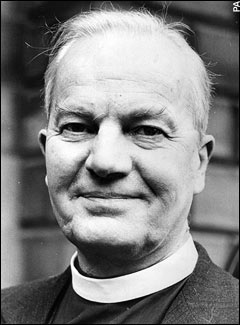
Thomas Forsyth Torrance, commonly referred to as T. F. Torrance, was a Scottish Protestant theologian and Presbyterian minister. He was a member of the famed Torrance family of theologians. Torrance served for 27 years as professor of Christian dogmatics at New College, in the University of Edinburgh. He is best known for his pioneering work in the study of science and theology, but he is equally respected for his work in systematic theology.
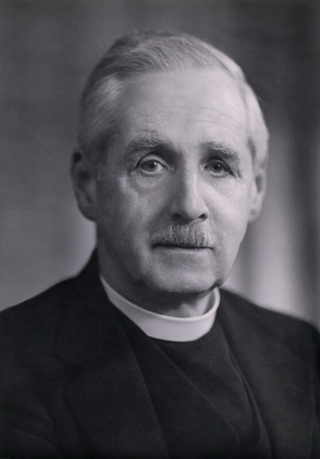
John Baillie was a Scottish theologian, a Church of Scotland minister and brother of theologian Donald Macpherson Baillie.

Subordinationism is a Trinitarian doctrine wherein the Son is subordinate to the Father, not only in submission and role, but with actual ontological subordination to varying degrees. It posits a hierarchical ranking of the persons of the Social Trinity, implying ontological subordination of the persons of the Son and the Holy Spirit. It was condemned as heretical in the Second Council of Constantinople.
John Haddon Leith was a Presbyterian theologian and ordained minister who was the Pemberton Professor of Theology at Union Theological Seminary in Virginia from 1959 to 1990. He authored at least 18 books and countless essays on Christianity, over the years moving from a moderate to a strongly critical, conservative perspective on the Presbyterian Church (USA).

John Calvin believed that Scripture is necessary for human understanding of God's revelation, that it is the equivalent of direct revelation, and that it is both "majestic" and "simple." Calvin's general, explicit exposition of his view of Scripture is found mainly in his Institutes of the Christian Religion.
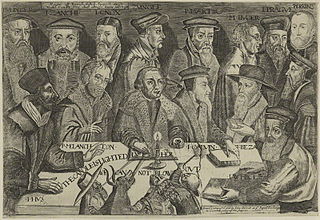
Reformed Christianity originated with the Reformation in Switzerland when Huldrych Zwingli began preaching what would become the first form of the Reformed doctrine in Zürich in 1519.
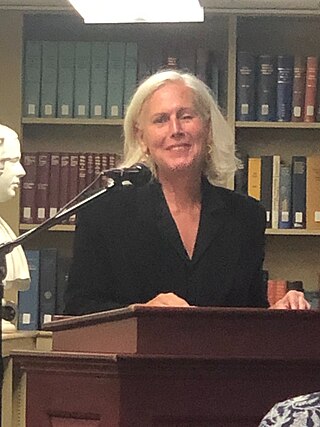
Lynda Serene Jones is an American Protestant theologian. She is the president and Johnston Family Professor for Religion and Democracy at Union Theological Seminary in the City of New York. She was formerly the Titus Street Professor of Theology at Yale Divinity School and chair of gender, woman, and sexuality studies at Yale University.
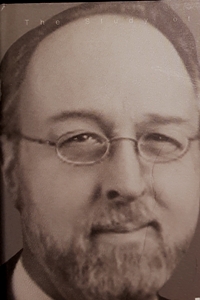
Richard A. Muller is an American historical theologian.

In Reformed theology, baptism is a sacrament signifying the baptized person's union with Christ, or becoming part of Christ and being treated as if they had done everything Christ had. Sacraments, along with preaching of God's word, are means of grace through which God offers Christ to people. Sacraments are believed to have their effect through the Holy Spirit, but these effects are only believed to accrue to those who have faith in Christ.
Donald K. McKim is an American Presbyterian theologian and editor. He works as Academic and Reference Editor for Westminster John Knox Press.

Paul Chang-Ha Lim an American ecclesiastical historian who serves as professor of church history at Vanderbilt University Divinity School. His main research involves the intellectual history and historical theology of Reformation and post-Reformation England.
Henry Beveridge (1799–1863) was a Scottish lawyer, translator and historian.
Ford Lewis Battles was an American historian and theologian and one of the foremost scholars of John Calvin. He was an important contributor to the twentieth-century renaissance of Calvin studies, bequeathing his legacy in the masterly translation of Calvin's Institutes of the Christian Religion (1960) published under the editorship of the Canadian-born scholar, Dr. John T. McNeill.
Elizabeth Jane Dempsey Douglass is an American Presbyterian theologian and ecclesiastical historian. She was a professor at Claremont Graduate School before becoming the Hazel Thompson McCord Professor of Historical Theology at Princeton Theological Seminary. Douglass served as the President of the World Alliance of Reformed Churches from 1990 to 1997, making her the first woman to head a worldwide communion of churches.